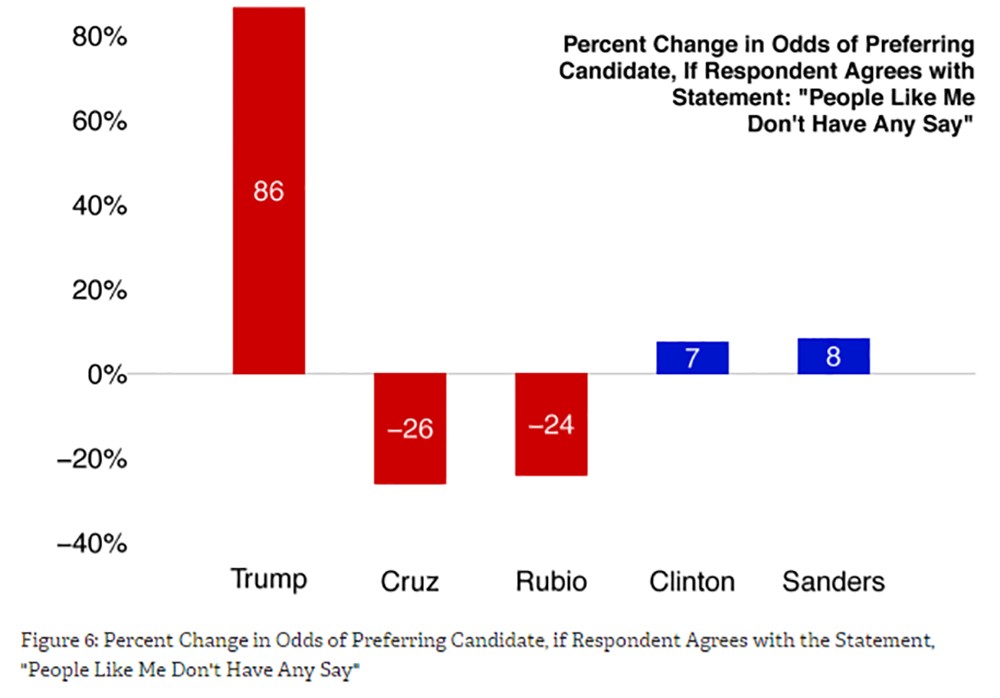A sense of political disenfranchisement among Republicans strongly predicts support for Donald Trump.
By Lisa Wade
Donald Trump addresses supporters during a political rally at the Phoenix Convention Center on July 11, 2015, in Phoenix, Arizona. (Photo: Charlie Leight/Getty Images)
One explanation for Donald Trump’s popularity on the political right is that supporters are attracted to him because they feel invisible to “establishment” candidates and Trump, as an “outsider,” is going to “shake things up.” A survey of 3,037 Americans completed by RAND, weighted to match the (citizen) population of the United States, suggests that there is something to this.
About six months ago, RAND asked respondents if they agreed with the statement “People like me don’t have any say about what the government does.” Responses among likely Democratic voters didn’t significantly correlate with support for either Bernie Sanders or Hillary Clinton, and those among likely Republican voters didn’t significantly correlate with support for Marco Rubio or Ted Cruz, but responses did correlate dramatically with a preference for Trump. All other things being equal, people who “somewhat” or “strongly” agreed with the statement were 86 percent more likely to prefer Trump over other candidates.

(Graph: RAND)
“This increased preference for Trump,” RAND explains, “is over and beyond any preferences based on respondent gender, age, race/ethnicity, employment status, educational attainment, household income, attitudes towards Muslims, attitudes towards illegal immigrants, or attitudes towards Hispanics.”
Whatever else is driving Trump voters, a sense of disenfranchisement appears to be a powerful motivator.

||
This story originally appeared on Sociological Images, a Pacific Standard partner site, as “Sense of Political Disenfranchisement Strongly Predicts Support for Trump.”





